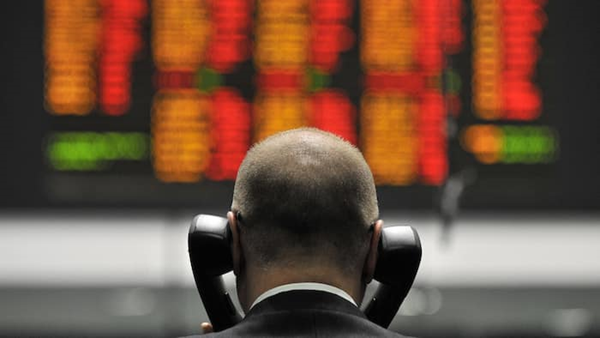|
Shareholder activism
Activist hedge funds found wanting in
essential tasks
US hedge funds not fulfilling
function of making profits and helping wider investor community
|

© EPA
|
[march
29, 2016]
by:
Stephen Foley in New
York and
Miles Johnson in London
US lawmakers including
Elizabeth Warren and Bernie Sanders are supporting a new bill that
aims to curb activist hedge funds, but it seems that financial markets
are already taking the wind out of activists’ sails without them.
While concern about whether activists
exacerbate corporate short-termism has now reached Capitol Hill, it
has been building for some time among the wider shareholder community.
Activist hedge funds have been on site at an accumulating number
of corporate disasters, of which the plunging share price of Valeant
Pharmaceuticals is just the latest.
By urging companies to improve their
returns to shareholders, these
activists are supposed to benefit the wider investor community at
the same time as making fat profits for their own funds — but on both
counts they have often been found wanting.
“Activism is a credibility game,” says
Alper Ince, an investor in hedge funds at fund of funds group Paamco.
“You have to have credibility with management and a good reputation.
At the end of the day this is also a stock picking strategy, so if
your batting average goes down with bad picks then it will become more
difficult to convince the market of your view.”
Last week, Valeant, a company
effectively built by the activist fund ValueAct, repudiated its entire
corporate culture as one where “the tone at the top of the
organisation and the performance-based environment … may have been
contributing factors resulting in the company’s improper revenue
recognition”.
It is not the first time that activists
have been blamed for pushing companies to enhance short-term
shareholder value at the expense of the long term. Between 2012 and
2014, ADT, the alarms business, bought back more than $2bn in stock,
partly at the behest of activist fund Corvex; the buybacks were
followed by a profit warning that the company blamed on its failure to
match rivals’ investment in marketing.
Corvex got $44 per share selling back
the bulk of its stake to the company before the profit warning, a
share price the company has never seen since.
More recently, LPL Financial, a
stockbroking business, went on a debt-funded buyback spree under
pressure from Marcato Capital, which is run by Mick McGuire, a protégé
of Bill Ackman, only to see its shares crash 40 per cent this year as
faltering earnings prompted concerns about its debt load.
The debacles risk robbing activists of
one of the things that gives them their edge: their reputation for
adding shareholder value.
Activist funds lost 9 per cent, after
fees, in the year to February 29, according to HFR, and have returned
just 2.8 per cent a year over the past three years, a period when the
broader stock market returned an annualised 10.8 per cent. The
industry’s biggest stars dimmed: Daniel Loeb’s activist portfolio lost
3 per cent in 2015; Carl Icahn lost 18 per cent; and Mr Ackman
suffered a
20 per cent meltdown last year that has only worsened in the
opening months of this year.
The reaction has been swift. For the
first time since the financial crisis, investors pulled money out of
activist funds in the fourth quarter of 2015, a net $1.5bn, about 1
per cent of their total assets, and there is an expectation that this
year’s first-quarter figure could be even worse.
Anthony Scaramucci, founder of the fund
of hedge funds company SkyBridge Capital, reduced his company’s
investments with several high-profile funds late last year when it
became clear that profits were no longer rolling in, despite an
apparently benign environment for activism.
“The activists over the past 24 months
have had only tailwinds,” Mr Scaramucci said. “There has been tons of
cash on S&P 500 balance sheets, near-zero interest rates and all the
positive rules in the Dodd-Frank act that improved minority
shareholder rights and allowed activists to exert more power over
companies. They had these huge tailwinds and yet they did not do
well.”
The so-called Brokaw Bill introduced on
Capitol Hill earlier this month is designed to add some headwinds. It
is named after the little Wisconsin town where locals blame the
closure of a paper mill by Wausau Paper on pressure from activist fund
Starboard Value.
“We cannot allow our economy to be
hijacked by a small group of investors who seek only to enrich
themselves at the expense of workers, taxpayers and communities,” said
Tammy Baldwin, the Democratic representative who has co-authored the
proposed legislation.
The bill aims to make life harder for
activist hedge funds by forcing them to disclose their stakebuilding
and derivatives positions more quickly — within two days of hitting a
5 per cent stake, rather than the current 10 days — and limiting their
ability to work with other funds.
For the time being, the bill has
received little traction beyond the core group of liberals who signed
up earlier this month, but that might not matter. The skies are
getting darker for activists regardless.
“This is an unforgiving industry,” says
Paamco’s Mr Ince. “Making mistakes can lead to massive outflows.”
Copyright The Financial Times Limited 2016. |